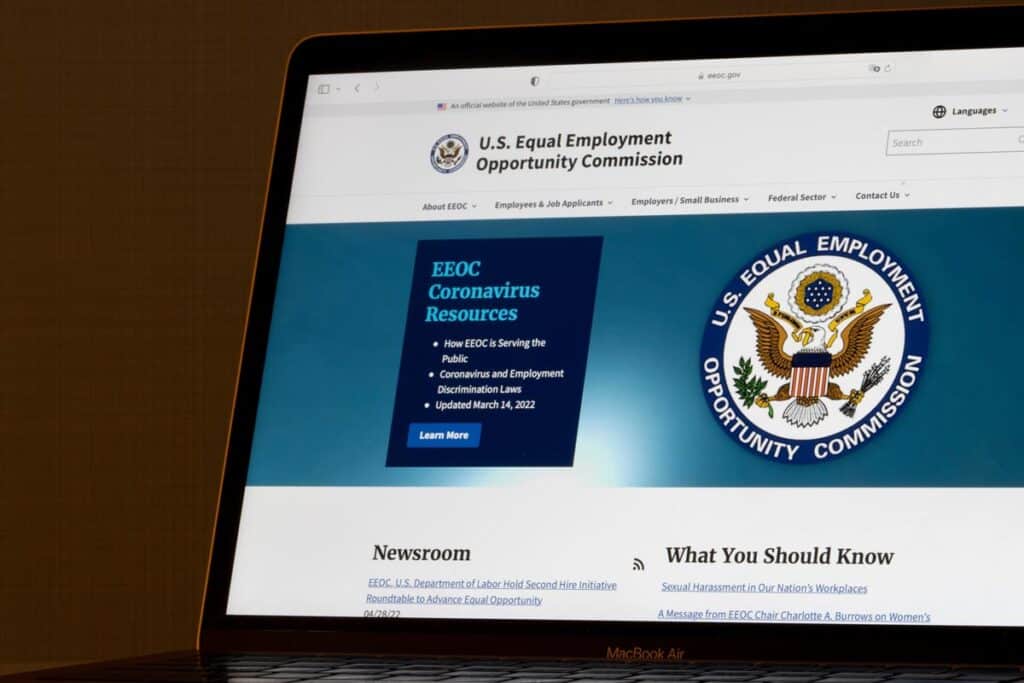
EEOC pregnancy employment regulations overview:
- Who: The U.S. Equal Employment Opportunity Commission issued a notice of proposed rulemaking on Monday to implement the Pregnant Workers Fairness Act (PWFA).
- Why: The PWFA builds upon existing protections against pregnancy discrimination in Title VII of the Civil Rights Act and reasonable accommodations built into the Americans with Disabilities Act.
- Where: Nationwide.
The U.S. Equal Employment Opportunity Commission (EEOC) proposed rules to implement a law on Monday requiring employers to provide “reasonable accommodations” for workers who are limited by pregnancy, childbirth, or related conditions.
A notice of proposed rulemaking to implement the Pregnant Workers Fairness Act (PWFA) has been posted by the Federal Register for public inspection and will be available for public comment on Aug. 11, according to the EEOC.
The PWFA builds upon existing protections against pregnancy discrimination under Title VII of the Civil Rights Act and access to reasonable accommodations built into the Americans with Disabilities Act.
“This important new civil rights law promotes the economic security and health of pregnant and postpartum workers by providing them with access to support on the job to keep working, which helps employers retain critical talent,” said EEOC Chair Charlotte A. Burrows, in a statement.
EEOC calls Pregnant Workers Fairness Act a ‘step forward’ for workers, families, and the economy
The only way an employer would not be required to provide reasonable accommodation to a worker with pregnancy limitations is in the event doing so would cause the employer to suffer “undue hardship,” according to the EEOC.
Burrows, who said the PWFA is a “step forward for workers, families and the economy,” has encouraged members of the public to provide “meaningful feedback” about how the proposal would impact the workplace.
The notice of proposed rulemaking was approved at the beginning of August by the EEOC, which said it explains “how the EEOC proposes to interpret the PWFA and certain terms in the statute, such as ‘temporary’, ‘essential functions’, and ‘communicated to the employer.’”
President Joe Biden signed the PWFA into law at the end of December. The law officially went into effect on June 27, at which time the EEOC began enforcement and accepting charges.
The PWFA easily passed the House of Representatives in September 2020, with all Democratic members and more than half of all Republicans voting to support it.
Have you been discriminated against by an employer during or after your pregnancy? Let us know in the comments!
Don’t Miss Out!
Check out our list of Class Action Lawsuits and Class Action Settlements you may qualify to join!
Read About More Class Action Lawsuits & Class Action Settlements:
- Yellow class action claims sudden layoffs violate law requiring 60 days’ notice
- Food delivery apps tell judge NYC wage hike would destroy gig economy
- Goodyear lawsuit claims Kronos hack led to company’s failure to pay wages earned
- Wayfair class action alleges company fails to pay for pre-, post-shift activities














